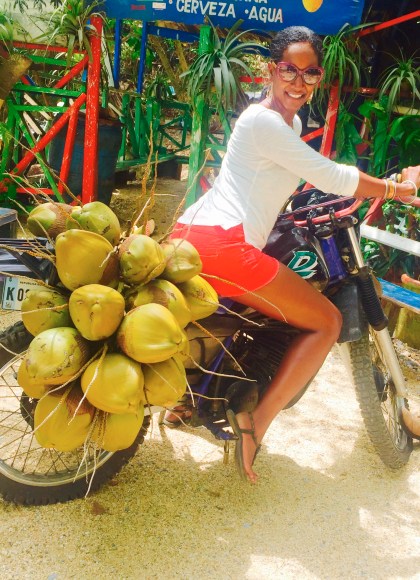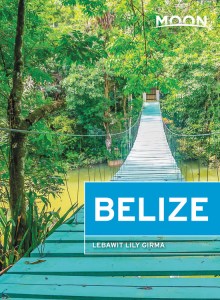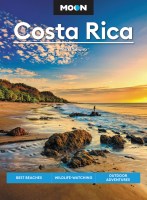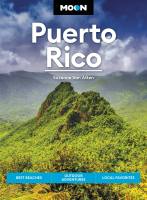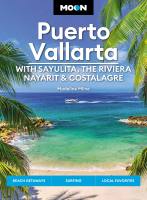Planning a Visit to Sarteneja, Belize
From the Mayan Tzaten-a-ha (“give me the water”), Sarteneja was named after the 13 Mayan wells found in the area, carved into limestone bedrock and providing potable water. In addition to being a picturesque fishing village, Sarteneja is the only place on mainland Belize where you can watch the sun set over the water. The spot was first settled by the Maya as an important trading area. It is thought to have been occupied from 600 BC to AD 1200, and period gold, copper, and shells continue to turn up in the area. Mexican refugees from the Yucatán Caste Wars settled here in the mid-19th century, again attracted by the availability of drinking water. The village took a pounding from Hurricane Janet in 1955 but rebounded and became known for its boat builders and free-diving lobster and conch fishers.
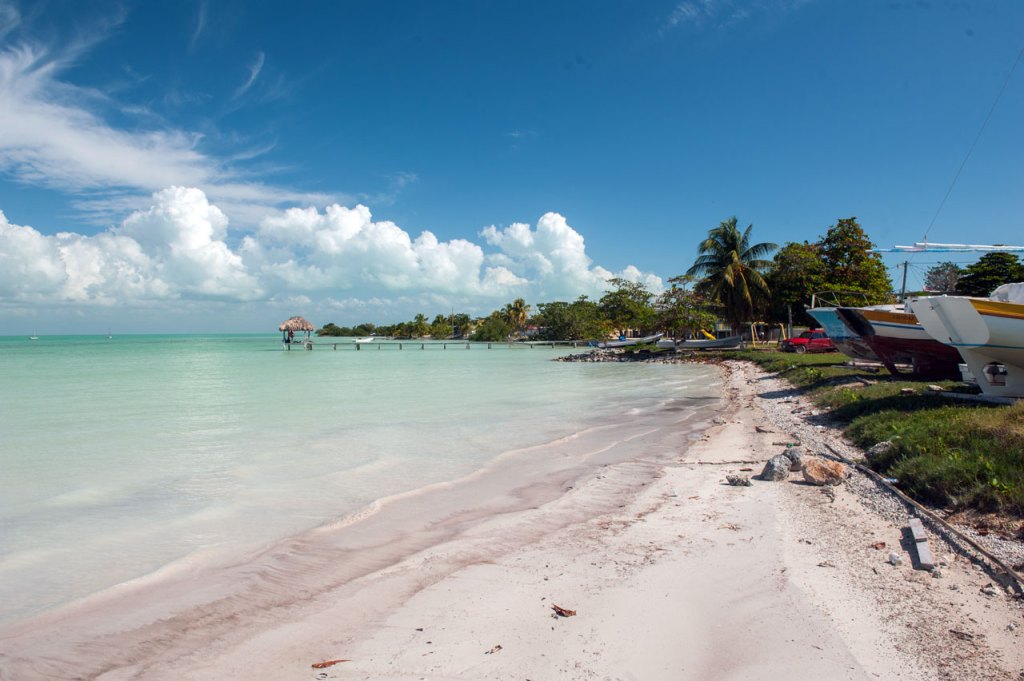
Today, 80 percent of Sarteneja’s households remain reliant on the resources of the Belize Barrier Reef. Tourism is creeping in, and Sarteneja offers one of the more off-the-beaten-path experiences in the country. Located on Corozal Bay, it is a well-kept secret in Belize, and few travelers have heard about its breathtaking sunsets, sportfishing, turquoise swimming waters, and importance as a protected area for manatees and bird-nesting colonies in the Corozal Bay Wildlife Sanctuary. This is slowly changing, as more travelers now stop here on their way to the Northern Cayes. Bring your swimwear—the water is beautiful, and a stop here feels like an island getaway.
Wooden Boats
Sarteneja is known for the annual Easter Regatta, during which newly painted sailboats of the artisanal fishing fleet, crewed by local anglers, race against each other in a tradition that has continued since 1950. The regatta, on Easter weekend, includes live music, food, and fun local “catch the greasy pig” games. Master boat builders Juan Guerrero and Jacobo Verde handcraft traditional wooden vessels at their workshops in Sarteneja—the wooden boat-building tradition is unique in Belize and also in all of Central America. During fishing season, these boats dock in Belize City by the Swing Bridge. If you’re interested in culture and boats, ask around for the Mitzi-Ba Wooden Boat Building workshop to see master builder Juan Guerrero at work. If you’re lucky, you’ll witness one being designed from scratch.
Things to Do in Sarteneja
Sarteneja’s location is ideal for fishing, kayaking, sailing, or exploring the nearby reserves. You can rent kayaks from the office of the Tour Guide Association (Front St., US$5 per hour double kayak, up to 5 hours maximum), or ask about its Manatee Day tour to go manatee spotting (US$20 pp). The beach on the long, pretty coastline offers swimming and relaxing. The farther east you go, the prettier and more isolated the swimming areas get. Rent a bicycle from Brisis Bike Rental (Front St., no phone, 10am-4pm) if your guesthouse doesn’t provide one. Other options include hiking in the Shipstern Nature Reserve, exploring the Bacalar Chico National Park and Marine Reserve on the northern tip of Ambergris Caye, or fishing along Corozal Bay (US$30 pp for 2 people) with Ritchie Cruz of Ritchie’s Place (Front St., tel. 501/668-1531).
With access to nearby Mayan sites and ties to the barrier reef at Bacalar Chico, Sarteneja has a lot to offer the adventurous traveler in search of the real Belize. The community is aware of its resources, and groups have joined forces to form the Sarteneja Alliance for Conservation and Development (N. Front St.), which comanages Corozal Bay Wildlife Sanctuary. Local anglers, now trained as guides, offer a number of guided tours, both marine and inland. Contact Evanier Cruz, the president of the Sarteneja Tour Guide Association (tel. 501/635-1655). The office is located on the seafront; take a left from the arrival dock. It can also help visitors find a licensed local tour guide.
Sarteneja is also the location of the Manatee Rehabilitation Centre, run by Wildtracks, a local NGO that takes in and rehabilitates orphan manatee calves as part of a national program to protect this threatened species. The center is not open to visitors.
Getting To Sarteneja
Sarteneja has been linked to the rest of Belize by land for less than 40 years—roads are rugged and dusty and, during rainy season, often flooded and rutted. The road from Corozal to Sarteneja was recently upgraded through a European Union-funded project; although the road remains unpaved, it was a significant improvement. Still, expect a few rough spots after a heavy rain.
Getting to Sarteneja By Boat
Most visitors get to Sarteneja by boat from Corozal or San Pedro. The water taxi Thunderbolt (tel. 501/422-0026, cell tel. 501/610-4475, captain’s cell 501/631-3400), a well-run and locally owned operation, will stop in Sarteneja on its once-daily Corozal-San Pedro run. It departs Corozal at 7am, arriving in Sarteneja 40 minutes later before heading on to San Pedro. The San Pedro-Corozal boat (about 90 minutes) departs at 3pm from San Pedro, stopping at Sarteneja at approximately 4:30pm.
Note that Sarteneja is an on-request-only stop on the way back, so let the captain and crew know as you board if you’re heading to Sarteneja only on a day trip from Corozal, to be sure to get picked up in Sarteneja on the 4:30pm return boat (Corozal-Sarteneja US$12.50 one-way, US$25 round-trip, San Pedro-Sarteneja US$22.50 one-way, US$42.50 round-trip). The Thunderbolt runs every day of the year except Christmas Day and Good Friday.
Newsletter Signup
By clicking ‘Sign Up,’ I acknowledge that I have read and agree to Hachette Book Group’s Privacy Policy and Terms of Use
Getting Sarteneja By Air
Tropic Air (tel. 501/226-2012, U.S. tel. 800/422-3435) has two flights a day that will stop at Sarteneja’s tiny airstrip on request. Flights leave San Pedro at 7am and 4:45pm daily, arriving in Sarteneja 10 minutes later, as part of the San Pedro-Corozal schedule. Flights will stop later in the day if there is more than one passenger requesting to be dropped off or picked up in Sarteneja.
Getting to Sarteneja By Bus
The bus from Belize City is often full of returning anglers and is the most exciting way to get here. The distinctive light-blue Sarteneja buses leave Belize City from a riverside lot next to the Supreme Court building. Four buses make the three-hour ride (US$5 one-way), the first at noon and the last at 5pm Monday-Saturday. All buses stop just before the bridge at the Zeta Ice Factory in Orange Walk to pick up more passengers.
Buses depart Sarteneja for Belize City (via Orange Walk) between 4am and 6:30am. There is a direct bus from Chetumal, via Corozal and Orange Walk, which runs every day, including Sunday, leaving Chetumal at noon or 1pm (depending on whether or not Mexico is on daylight saving time). It departs for Corozal and Chetumal at 6am daily. Buses from Corozal are intermittent, so it’s best to check with the Corozal bus station first. There is also local traffic going to Sarteneja from Orange Walk via San Estevan.
Getting to Sarteneja By Car
From Corozal, head south and turn left at the sign for Tony’s Inn. Follow this road, veering right until you come to a stone wall; then go left. Follow this road until you reach the first ferry across the New River, an experience in itself and free of charge. Sometimes there are lineups on Friday and Monday, so anticipate a bit of a wait. After crossing, continue on the unsurfaced road until you reach a T junction. Turn left toward Copper Bank, Cerros, and the ferry to Chunox.
On entering Copper Bank, keep driving until you see the signs for Donna’s Place (an excellent eatery) and the Cerros ruins. If you’re not stopping to eat or visit the ruins, turn left at the ruins sign and proceed until you see the sign for the ferry crossing. After crossing, continue until you reach another T junction. Turn left for Sarteneja, or right for Chunox and the grinding drive through Little Belize back to Orange Walk.
Newsletter Signup
By clicking ‘Sign Up,’ I acknowledge that I have read and agree to Hachette Book Group’s Privacy Policy and Terms of Use
